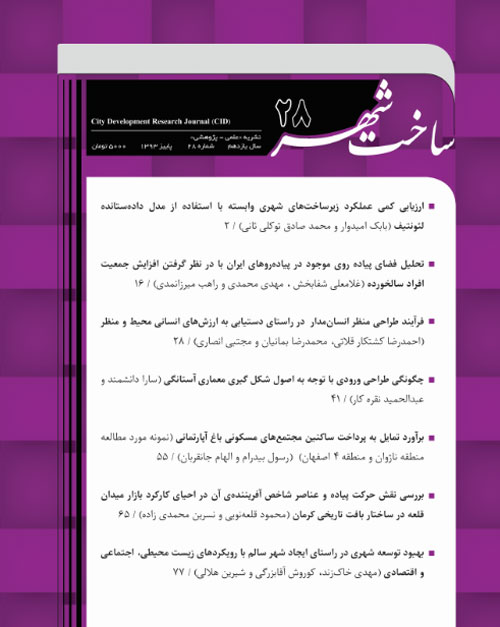Quantitative Performance Assessment of Interdependent Infrastructures Using the Leontief Input-Output Model
Author(s):
Abstract:
The quick increase in the dependency on infrastructure systems in modern life has increased the need for them. If the services of these infrastructures, due to natural or manmade disasters, such as hurricanes, earthquakes or terrorism events, are threatened or interrupted, the commercial and business activities would be hampered; production would decrease or completely stop; and, finally, the public welfare would be jeopardized. In addition to the direct loses, there is another factor that affects the vulnerability of lifelines in the case of disasters, that of the interdependency between lifelines. As the systems are more developed and advanced, the effect of this phenomenon is heightened and more widespread. It can cause a disruption in the undamaged components of a system due to its functional dependency on another damaged system. Therefore, vulnerability evaluation is not complete without considering the whole system of interacting infrastructures. The purpose of this study is modeling the functionality of the water network and finding some solutions to increase resilience against disruptions after the occurrence of an earthquake. An algorithm using the Leontief inputoutput model is proposed to survey the interaction between the water and electricity networks in one of the districts of Tehran, the capital of Iran. It is quantitatively shown that the decrease in interdependency has a direct and great effect on the increase in service flow reduction. However, the pattern of this effect is different between various earthquake scenarios. It is concluded that the first 20% reduction of interdependency has the greatest effect on the network performance measure. The proposed model may be used in system analysis for other dependent infrastructures and disasters and can be considered as a helpful measure for decision-makers in emergency management.
Keywords:
Language:
Persian
Published:
City Development Research Journal, Volume:11 Issue: 28, 2014
Page:
2
https://www.magiran.com/p1383517
سامانه نویسندگان
مقالات دیگری از این نویسنده (گان)
-
Development of a Waste Generation Prediction Model Using Independent Macro Variables in Various Sectors (Case Study: Tehran)
Saeed Moradi Kia, *, Mohammadali Abdoli, Esmail Salehi
Quarterly Journal of Environmental Education and Sustainable Development, Summer 2024 -
Developing a Dynamic Model for Sustainable Management of Municipal Solid Wastes to Reduce Landfill
Saeed Moradikia, *, Mohammad Abdoli, Esmael Salehi
Pollution, Autumn 2024



